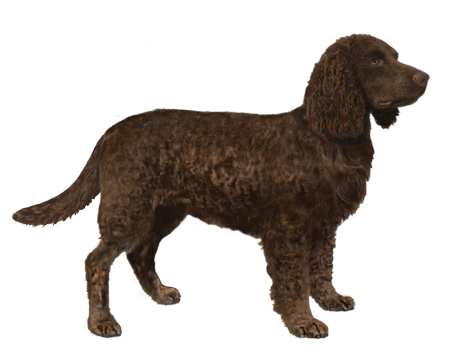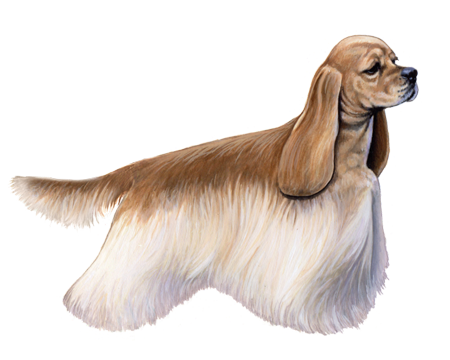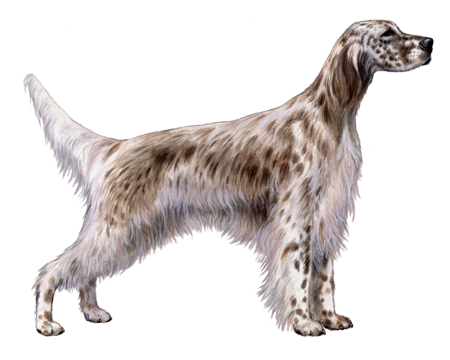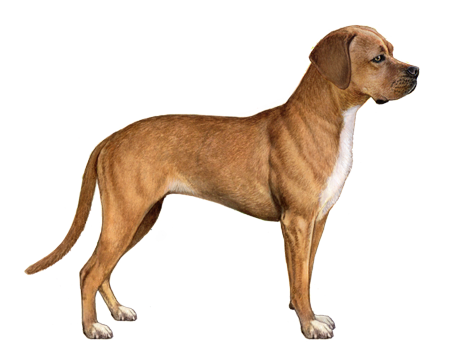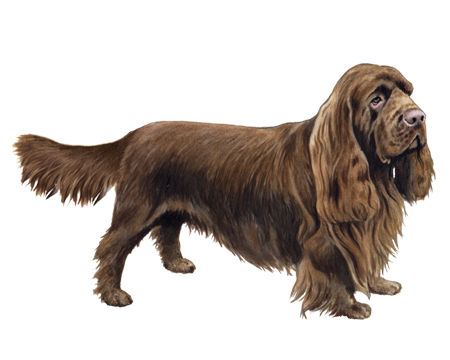
Pudelpointer
Pudelpointers are intelligent, calm, versatile gun dogs. They're excellent in the water and always eager to please. Though bred to hunt, these pups have friendly, goofy personalities that make them enjoyable family companions at home.
Interested in discovering if your dog is a Pudelpointer?
Check out Wisdom Panel's DNA tests.

Pudelpointer Traits
General Appearance
The Pudelpointer is a medium-sized, strong-boned gun dog with the general look of a Pointer.
Coat and Colouring
Pudelpointers have close, flat-lying, rough coats of medium-length with a dense undercoat. They sport adorable beards and a lock of hair above the forehead. Their coats are typically brown, dead leaf (a lighter shade of brown), or black. Some dogs have small white markings.
Distinctive Physical Traits
This breed has a flat, moderately broad skull and large, dark amber eyes. Pudelpointers' medium-sized ears lie flat and are well-covered in hair. And their straight tails reach the hock and are carried like a saber.
Pudelpointer Temperament
Pudelpointers are hunting dogs through and through. They have strong retrieving instincts and a love of water—making them an excellent choice for waterfowl hunters.
These calm, self-controlled pups typically get along well with other dogs. They also have a friendly, easy-going nature and clownish personality. As a result, they're just as much fun to be around at home as out in the field.


Pudelpointer History
The Pudelpointer originated in Germany in the late 1800s. At that time, German sportsmen were developing gun dogs suited to their way of hunting. A well-known author and expert on hunting dogs, who wrote under the pen name Hegewald, convinced hunters to cross Poodles with English Pointers. His goal was to create a breed that combined the Poodle's love of water, trainability, retrieving skills, and protective coat with the English Pointer's keen nose, pointing instincts, and zeal for hunting.
Breeders used far more Pointers than Poodles when establishing the breeding program. And once they achieved the look and character they were after, they no longer relied on Pointers and, instead, mated Pudelpointers to other Pudelpointers. The breed register was founded in 1892, and breeders formed the first Pudelpointer club in 1897.
H.D. Hume and Sigbot Winterhelt introduced the breed to North America in 1956. Today, most Pudelpointers are bred in Germany or the United States. The United Kennel Club recognized the breed in 2006, and the American Kennel Club has recorded it in their Foundation Stock Service since 2016.
Pudelpointer Care
Nutrition
Pudelpointers thrive on a high-quality diet formulated for their life stage (e.g., puppy, adult, senior) and breed size.
Obesity is a growing health concern for dogs. To help yours maintain a healthy weight, keep an eye on their food intake and measure their portions with a standard measuring cup to avoid overfeeding. And don't forget to account for treats. As a guideline, they should make up no more than 10% of a dog's daily calories.
Grooming
Pudelpointers need weekly brushing to remove loose hair from their coats. Occasional baths will also help keep them clean—particularly after a day of hunting in the field or woods.
And don't forget those nails. Regular nail trims should be part of every dog's grooming routine. Nails that get too long can cause pain and potentially lead to problems running or walking.
Lastly, good dental hygiene is essential to your pup's overall health. So, schedule professional cleanings and establish an at-home routine that includes regular teeth brushing and veterinarian-recommended dental chews.
Exercise
Like other hunting dogs, Pudelpointers need a fair amount of daily exercise. You can keep your pup active with long walks, hikes, and games of chase in the backyard. These dogs also love activities that play to their innate abilities, such as swimming and retrieving. But agility, rally, and competitive obedience are other great options.
Training
Pudelpointers are intelligent, eager-to-please dogs that are generally easy to train. A positive, reward-based approach using their favorite toys or treats will keep them engaged and responsive during training sessions.
Be sure to socialize your pup when they're young to help them develop into a well-adjusted adult dog.

Breed Group
Sporting
The sporting group breeds are incredibly diverse in personality and appearance, but can be characterized as very sturdy. They were developed to work closely with people and in general have a very responsive nature and high intelligence.




